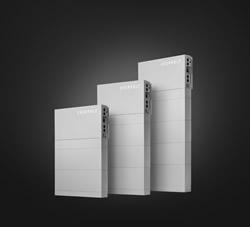New Micro Finance Scheme for Solar Lighting in the Solomons
Using crops in a unique barter system, a new microfinance project in the Solomon Islands has successfully implemented a solar lighting finance scheme, enabling communities to trade crops for much needed access to light.
Using crops in a unique barter system, a new microfinance project in the Solomon Islands has successfully implemented a solar lighting finance scheme, enabling communities to trade crops for much needed access to light.
A team of renewable energy developers working for SOPAC, the Pacific Islands Applied Geoscience Commission, and funded by REEEP, recently completed the first year pilot that formed the basis of the new micro energy service company concept.
If the islanders were not able to pay for solar lanterns with cash, reasoned the project developers, why not pay with crops?
Bartering is quite commonplace in the region and crops are often exchanged for fish, for instance. Through simple lateral thinking, an innovative microfinance scheme has been invented in which crops are exchanged, not for food, but for another commodity - electricity.
"The giving of crops is virtually the same as giving cash," states Paul Fairbairn, SOPAC's Community Lifelines Programme Manager.
The project developers focused on LED lights - an innovative, energy saving lighting system - powered by a solar photovoltaic panel and installed in individual homes and municipal buildings.
To pay for the investment, the local people, most of whom are farmers, plant enough cassava, dalo, banana and other crops as is necessary to make the planned monthly repayments. They take the crops to a cash-for-crops exchange which arranges to repay the banks. Ideally it is envisaged that the system is paid off within 24 months.
While it is a simple idea, the cash-for-crops centre, the hub of this pilot project which affects 35 properties in three villages in the Solomon Islands, has not been tried elsewhere on a major scale.
Eva Oberender, Regional Director of the REEEP Secretariat for South East Asia and the Pacific stated that the project is slated for expansion. "The success of the pilot showed that barter is a viable and most needed financial mechanism where access to cash is limited. Allowing for this innovative approach has the potential to impact many communities. Plans have already been sketched for a new phase", she said.
"The project can be rolled out and the solar entrepreneur in the Solomon Islands intends to install at least 5,000 lighting systems within the next three years", stated Fairbairn.
Featured Product

EVERVOLT home battery storage: Standby power with or without solar
Renewable energy stored in an EVERVOLT home battery system is the perfect backup plan against an uncertain utility grid and weather events. Run key appliances longer and live life when the unexpected happens. EVERVOLT battery storage systems are covered by a complete 12-year warranty from Panasonic.
